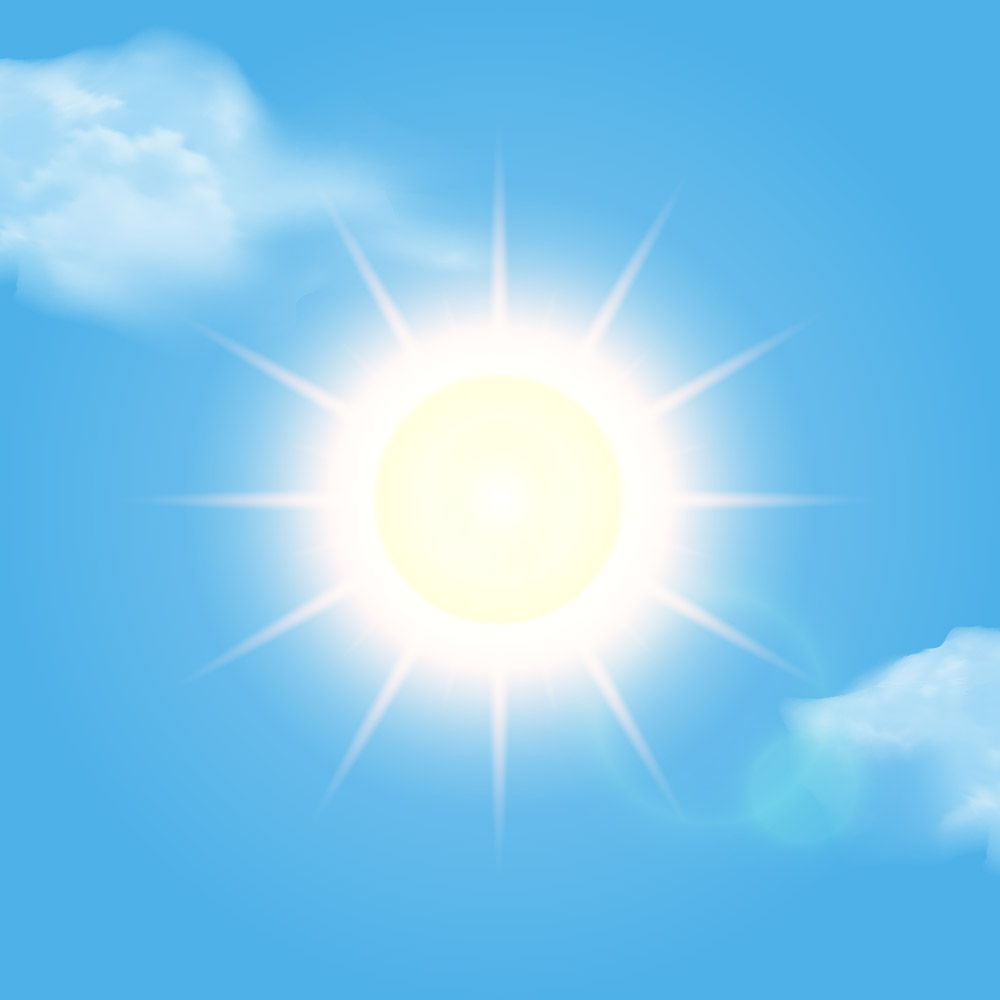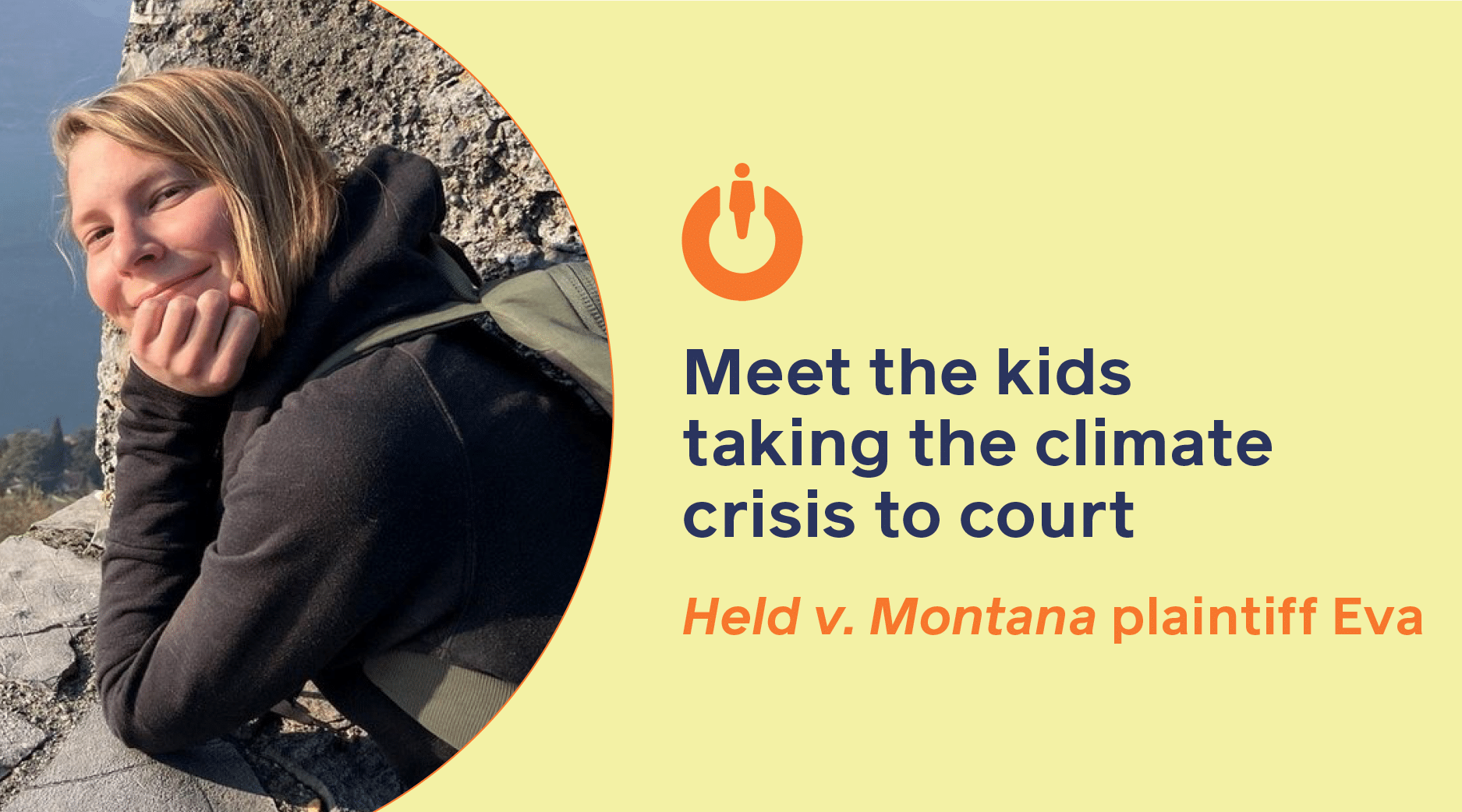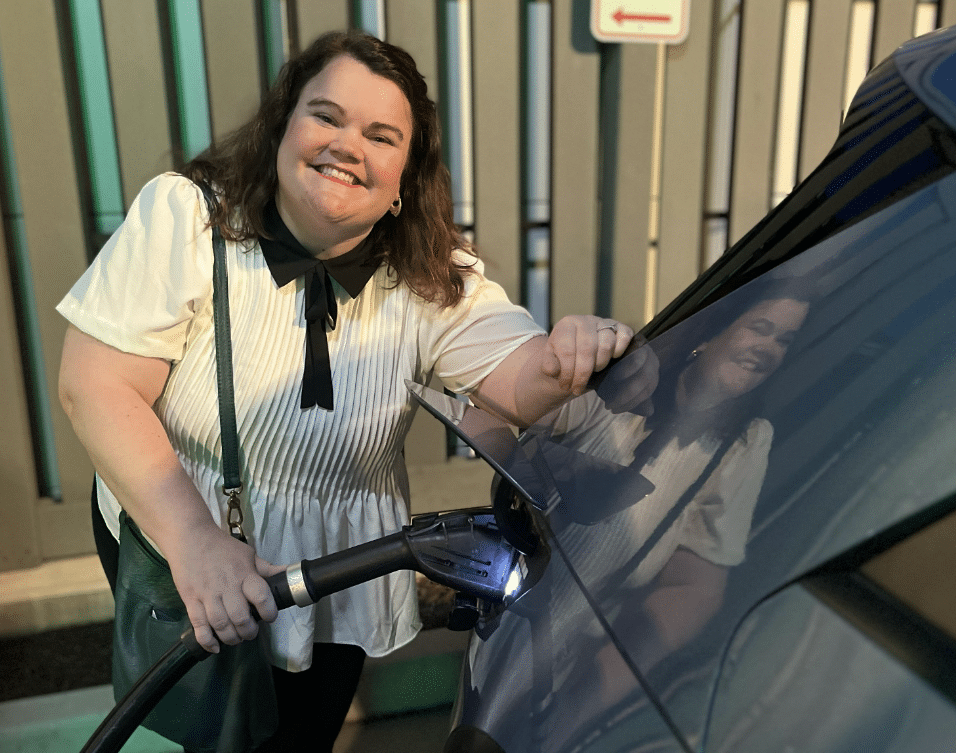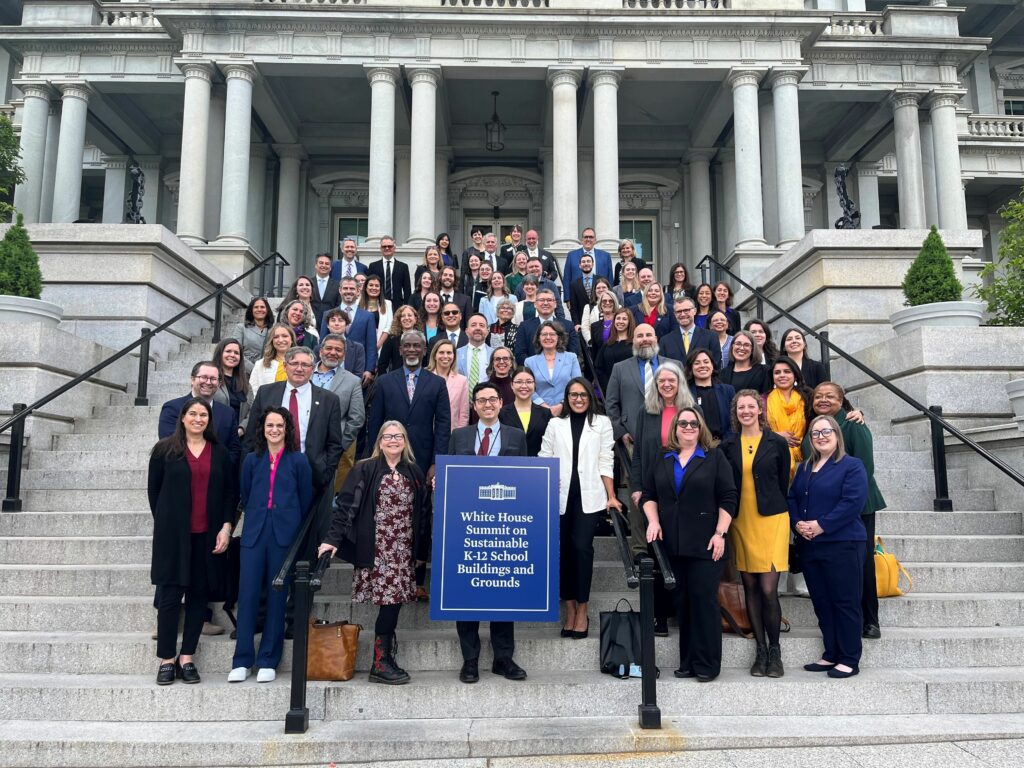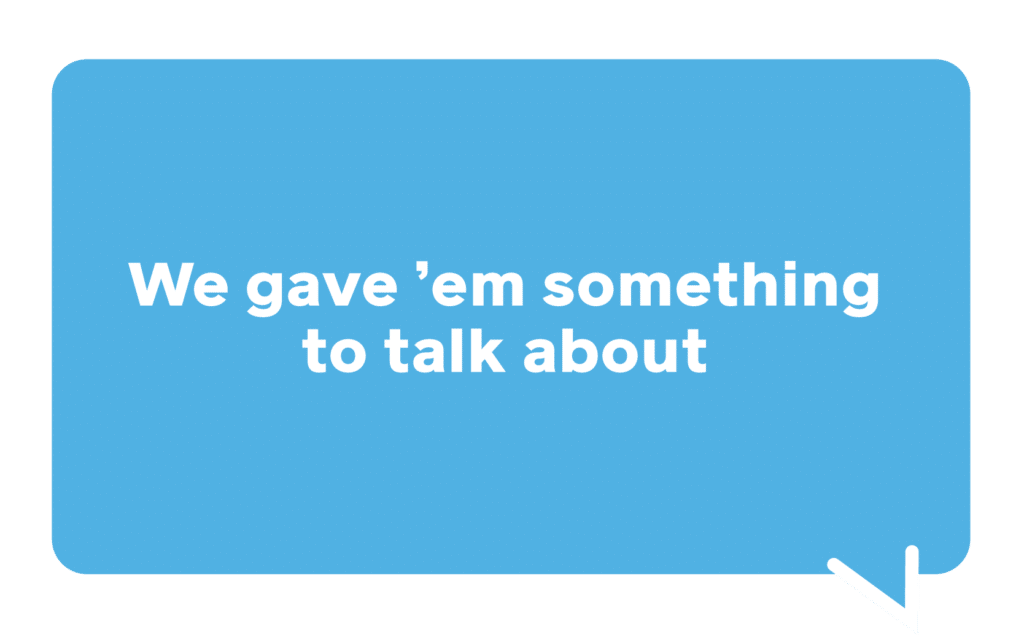There’s a groundbreaking climate lawsuit underway, Held v. the State of Montana. This case is unique because while thousands of climate change-related cases have been filed, this is the first time youth activists got their day in court. Going to trial means the youth plaintiffs have been able to establish, in the public record, evidence about the causes and effects of climate change.
We were lucky enough to interview one of the 16 young Montanans who argued that their state’s support of fossil fuels violates the state Constitution, specifically that it failed to live up to its constitutional mandate to “maintain and improve a clean and healthful environment in Montana for present and future generations.” This lawsuit is evidence that individuals still have the power to influence decisions that will impact the global climate crisis.
Jamie Wertz, Communications Manager, sat down with youth plaintiff Eva to discuss her role. You can watch the recording here, or read the interview below. Enjoy!
—
Jamie Wertz, Generation180: Eva, thank you so much for joining me! My name is Jamie, I’m the Communications Manager at Generation180. I’m really excited to learn more about your role in the groundbreaking climate lawsuit underway, Held v. Montana. I’d love to kick things off a bit more broadly. What sparked your interest in climate change and climate activism?
Eva: Well, from a young age, I kind of had an understanding that climate change was this great burden on our world and that it was something that was just rapidly going to worsen over time. I think as I became older and older as a kid I started to experience firsthand a lot more of what was happening in the world around me. I noticed wildfire smoke, and flooding, and all sorts of other impacts caused by climate change. And I think all of that led me to take action because I was scared, and I was really worried about my future.
J: That’s great! So, how did you get involved with the climate trial, specifically, and why do you think it’s important that the plaintiffs were all children and youth activists, like yourself?
E: Well, I originally got involved with Our Children’s Trust back in early 2020. My mom had seen their callouts through her work. She works for a local non-profit organization based out of my hometown and she offered this opportunity to me and said “Would you be interested in doing this?” And I said, “Yes, of course!” And that’s kind of how I ended up getting involved with Our Children’s Trust and eventually the trial. I think it’s really important [for the plaintiffs to be young] because a lot of us don’t have the right to vote. So taking to the courts is kind of a way that we can channel our youth voices. And I think that’s kind of why it’s really important this whole entire case is happening.
J: Couldn’t agree more. Could you share something that you learned by preparing for and going to trial?
E: I think one of the biggest things I learned is that I can use my voice as a platform. I think for a long time, I was very shy about my voice and wasn’t really sure if I could be heard. But I think that this case has really shown how much our youth’s voices matter and how much sway they have over what happens in the future.
I think for a long time, I was very shy about my voice and wasn’t really sure if I could be heard. But I think that this case has really shown how much our youth’s voices matter and how much sway they have over what happens in the future.
J: Wow, what a great opportunity to find your voice and gain confidence in using it in such an impactful way. What do you hope will come out of this legal challenge and if you are successful, what do you expect will change in your home state?
E: You know, I don’t know exactly what will change right away. I’m really optimistic about the case. I’m super hopeful. I thought we did really amazing at trial. I’m just very optimistic. But I don’t have a very huge sense of what it’s going to look like afterward.
J: I read a lot of articles after the trial and I am equally optimistic about the outcome. Do you have any advice for other young people who want to get involved in climate action?
E: I would say starting out locally. See what’s happening in your school. See if they’re doing anything and maybe talking to city officials, writing a letter to the editor. Doing small little things to start with to get the conversation going, if it isn’t already. I know living in a rural community can make that a lot more difficult. It does require some courage and some bravery. You do have to kind of put yourself out there, in a way. But there are a lot of different ways that you can start just within your community.
J: We’re all about starting local, especially for students and parents. One of our campaigns is a “Solar for All Schools” campaign, helping move the needle on clean energy adoption at schools. We have a campaign toolkit so other youth and children like yourself, can start to advocate for clean energy. One of the other plaintiffs and friends of yours, I hope, as it has evolved, Claire Vlases, we spotlighted her back in her initial climate journey, bringing solar to her school. Local climate action is a great way to start.
I’m curious if you have any favorite podcasts, newsletters, book recommendations, related to climate action that you would recommend to someone listening in.
E: Gosh, that’s a hard one. I can’t think of any books off the top of my head but I think that the 5th season of a podcast called, “Seen on Radio,” has a really great season all about climate change. If I remember correctly, it’s a timeline of climate change.
J: Nice, I’ll have to check that out. What are your future plans, and will climate be a focus of your college studies or future endeavors?
E: I’m not entirely sure what my future is going to look like yet. I’m kind of one of those people who’s just sort of pretty sure about their future and will kind of figure it out along the way. Yes, I think that this trial and this case has really impacted me and really makes me want to lean more about the activism side. I have a deeper understanding of the sciences behind climate change, as well. So I think I do want to pursue it further in my future but I’m not entirely sure how it’s going to play out yet.
J: That’s a great place to be, not knowing and seeing how it unfolds. Last question, and my favorite question to ask in our interviews… what gives you hope about our clean energy future?
E: It makes me really hopeful to think about a totally stable future with completely renewable energy. The idea of that just sounds fantastic. But what gives me a lot of hope right now is the fact that converting to all renewable energy is a completely feasible option. It’s honestly a lot better of a solution than continuing to move forward with the fossil fuel industry. That gives me hope that there’s so much technology and so much that we can implement in place that would be so much better for our future.
But what gives me a lot of hope right now is the fact that converting to all renewable energy is a completely feasible option. It’s honestly a lot better of a solution than continuing to move forward with the fossil fuel industry.











